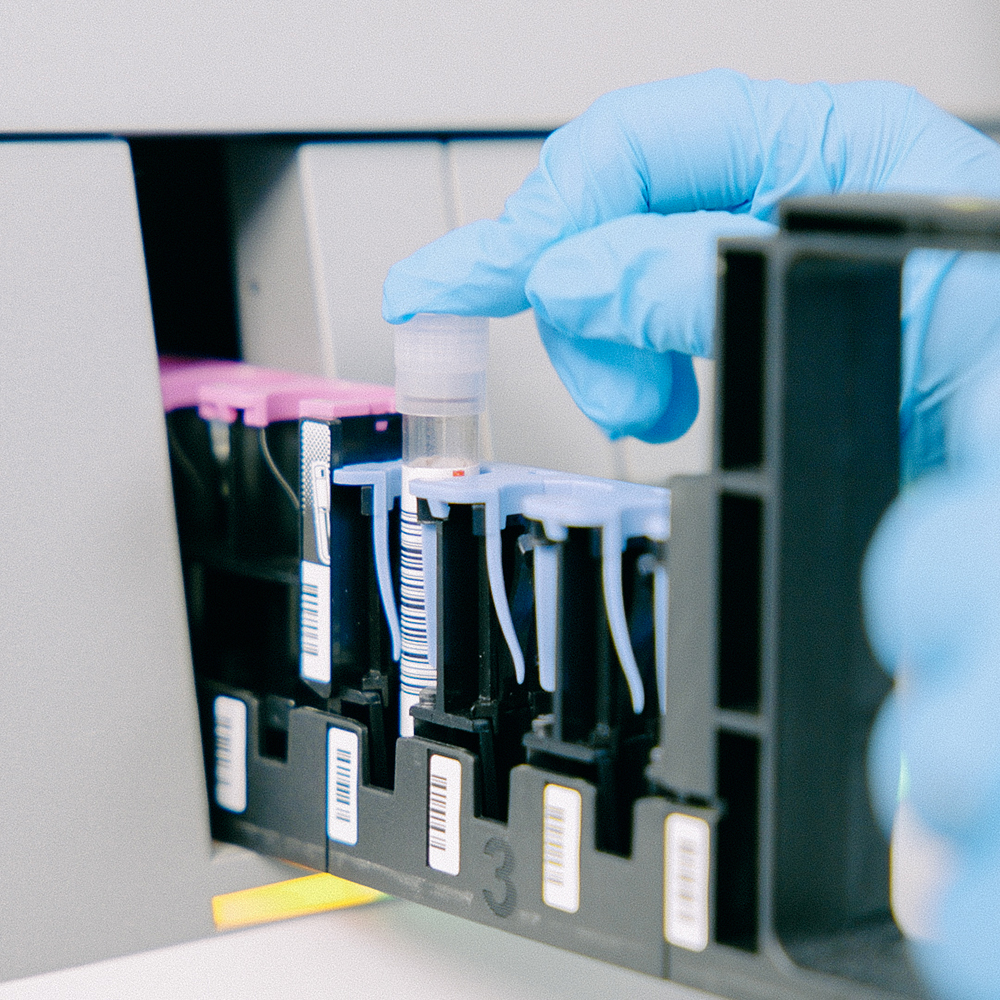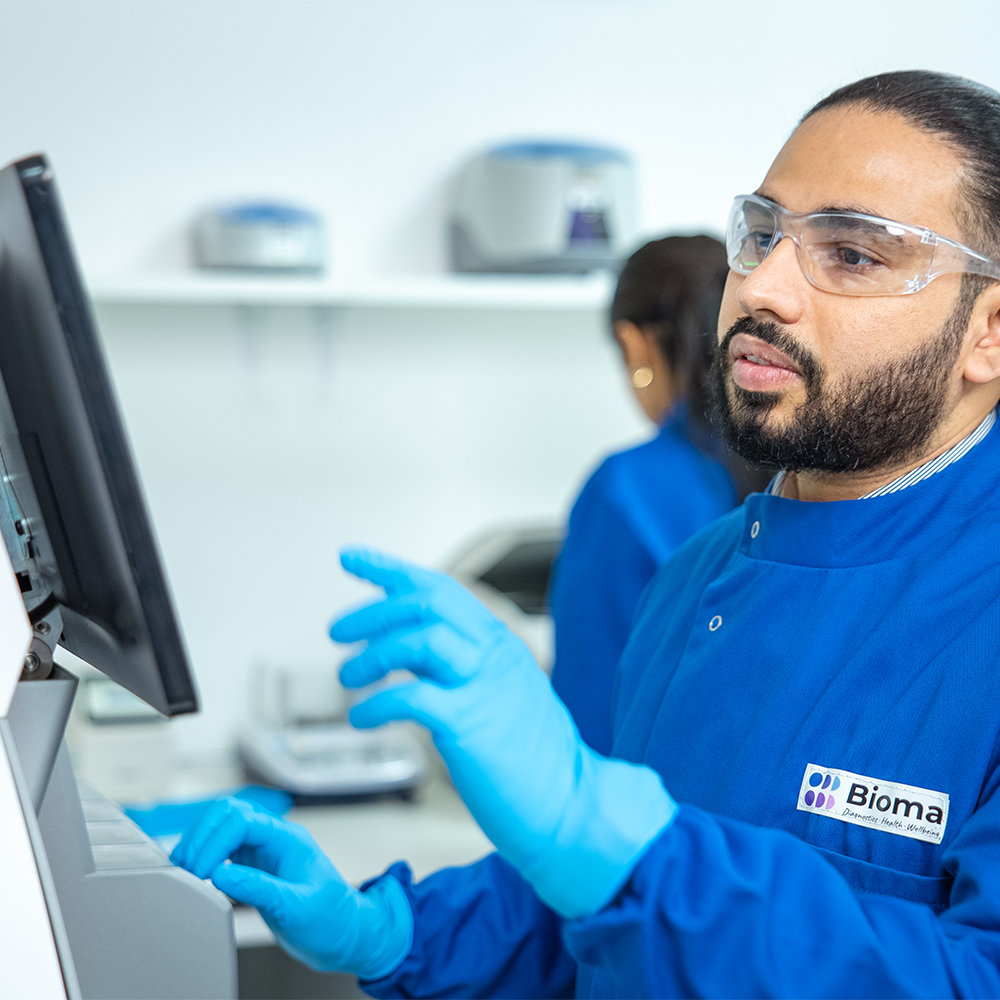Well Man Profile (Advanced)
£469.00
-
Results within 24 hours
-
Blood draw included
-
Report includes Biomarkers targets
Why take this test?
Our General Well-Being blood test provides an overall picture of the health and wellbeing of your body, it can be used in preparation for a fitness regime, lifestyle changes, or weight loss. Because the screen includes a wide selection of tests, it has the ability to detect early stages of conditions, diseases, or other health issues.
What does each test measure?
- Thyroid Function – This tests two hormones produced by the thyroid gland (T3, and T4), it is used to monitor thyroid treatments or diagnose thyroid disorders.
- Testosterone – Measures the level of testosterone in the blood sample, which is key in reproduction, growth, and the maintenance of a healthy body.
- Prostate Specific Antigen (PSA) – Indicates the level of PSA released into the blood via by the prostate gland, and is suitable for those at higher risk or have had treatment for prostate cancer.
- Vitamin D – Measures 25 Hydroxyvitamin D and 1.25 Dihydroxyvitamin D to test for Vitamin D deficiency, and even excess.
- Anaemia – An iron deficiency anaemia test which measures the iron (-HB/HbO2) in your blood, and determines haemoglobin levels.
- Cholesterol – Determines the total cholesterol levels in your blood.
- Diabetes – Glycated Haemoglobin (HbA1C) testing that measures glucose (sugar) levels.
- C-Reactive Protein (Inflammation) – Tests for inflammation in the blood, which can indicate a variety of conditions including bacterial infections, autoimmune disorders, and inflammatory bowel disease.
- Full Blood Count – Determines the levels of red and white blood cells, haemoglobin, haematocrit, and platelets.
- Creatinine – Produced by the muscles, it is measured to test for potential liver, muscle, and kidney disease.
- Liver and Kidney function – Measures the biomarkers: Urea, Sodium, Potassium, Chloride, Bicarbonate, Creatinine, eGFR, Calcium, Phosphate, Uric Acid, Iron, Total Iron Binding, Bilirubin, ALP, AST, ALT, Gamma GT, Total Protein, Albumin, Globulin, LDH, CK.
How often should this test be taken?
Depending on your age and if you are in an at-risk group for any potential health condition, this general test should be completed whenever recommended by your doctor. For healthy adults every 5 years, those in at risk groups or who are over 50, every 1-2 years is recommended.
Are there any risks to this test?
There is very little risk to the test, a blood sample is drawn from a vein in the arm, which can cause a little bruise and some discomfort, in rare cases an allergic reaction can be experienced.






